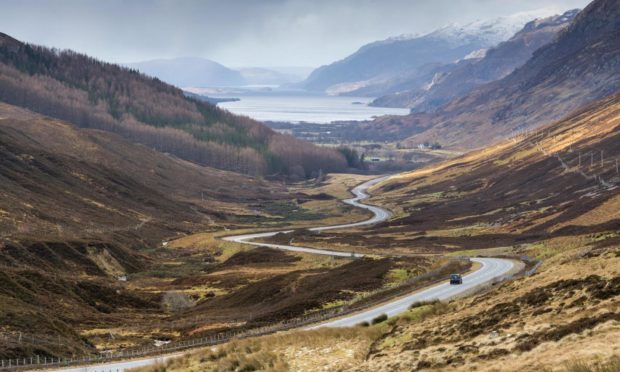Better infrastructure and decentralisation of visitor management were highlighted as priorities for meeting tourism needs in the Highlands and Islands at a recent election hustings.
Candidates representing six of the political parties standing for election to the Scottish Parliament were in agreement over these two issues.
The online hustings was hosted by community interest company, Highland Tourism.
All candidates called for decentralisation and more power at a local level, and business and community empowerment.
Kirk Torrance, an Alba candidate standing for a Highlands and Islands regional seat, said: “Rural problems require rural solutions.”
Infrastructure
He said he feels there is a need for more infrastructure projects, but added: “Scotland is facing severe challenges, we have our hands tied behind our backs.”
Jamie Halcro Johnston, Conservative candidate for Skye, Lochaber and Badenoch said we need to support our businesses in the Highlands and Islands. He added that the Scottish Government needs to “listen better to the sector”.
Andy Wightman, an independent standing for Highlands and Islands, called for further integration of tourism with other businesses in the area and greater ownership and control of the industry.
Marion Donaldson, Labour candidate for Caithness, Sutherland and Ross, said tourism had changed from being a cottage industry to a huge one and that this was a time for serious reflection.
Councillor Gordon Adam, who is not a candidate but spoke on behalf of the LibDems, said the best thing we can do to help tourism is get out of the way of the private sector and not put people off with too much regulation.
Public Toilets
Maree Todd, SNP candidate for Caithness, Sutherland and Ross, spoke about having the correct infrastructure – and making sure people know where it is. She wants to see a big increase in the number of public toilets made available.
All candidates appeared to support connecting better with residents and businesses in hearing their views and involving them more closely in economic decisions. Strategies for achieving this ranged from helping communities who were described as “voiceless” to be more involved, to addressing the vital need to make the industry more attractive to young people.
The politicians acknowledged a pressing requirement for housing in communities where there is little option for those working in the tourism industry to live.
Citizens Assemblies were suggested as a means to empower communities as part of a devolution of decision-making.
Candidates also pointed to the need for greater attention to sustainability and transport options as part of attracting tourists and ensuring visits are managed and dispersal encouraged.
Turnover for sector worth £541million
Yvonne Crook, director of Highland Tourism, said: “Turnover for the tourism sector in the Highlands and Islands is £541million with £320m gross value added.
“Tourism employs 19,000 people yet we have a tourism strategy that was prepared in 2014 and updated in 2017. The tourism statistics highlight that in 2019 overseas visitors, worth 40% more than domestic visitors in terms of spend, were down by 15%.
“However, yet we have no organisation leading and driving tourism forward for the Highlands which is the second top best known globally recognised brand in Scotland after Edinburgh.
“At such a critical time following the Covid pandemic, we have to have confidence that party policies are addressing key issues economically, environmentally and socially. So we were delighted that six party representatives attended our hustings. They all provided articulate and interesting thoughts and greatly contributed to an important discussion.”
